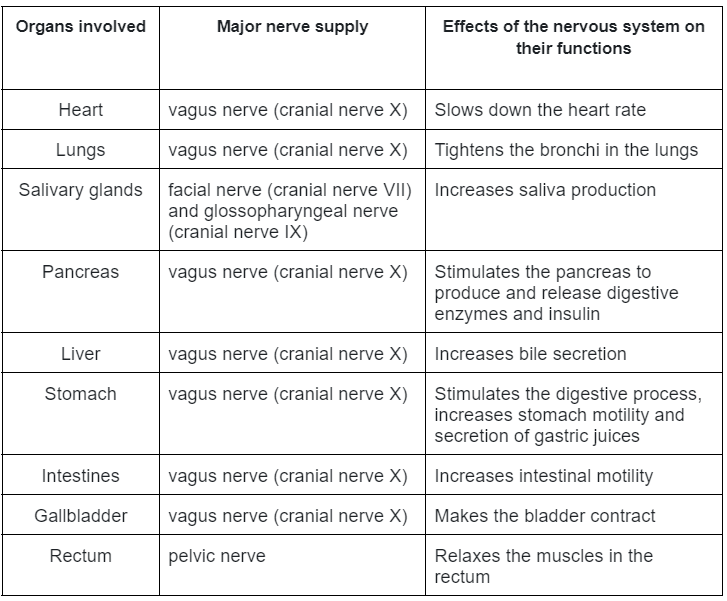1. You have been to an ‘eat all you can’ buffet and have consumed large amounts of food. After returning home, you recline on the couch to watch television. Which division of the nervous system will be handling your body’s after-dinner activities? List several organs involved, the major nerve supply to each organ, and the effects of the nervous system on their functions.
Which division of the nervous system will be handling your body’s after-dinner activities?
-
The parasympathetic nervous system controls bodily functions whenever a person is at rest, which in this case is the digestion of large amounts of food while the body relaxes. The parasympathetic division stimulates digestion and activates metabolism.
List several organs involved, the major nerve supply to each organ, and the effects of the nervous system on their functions.

2. Your friend is driving home from work, listening to her favorite music, when suddenly a bicycle came out of nowhere. She manages to swerve avoiding hitting the bicycle. She continued to drive home but she noticed that her heart is beating fast, she had goose bumps, and her heads were sweaty. How would you explain these effects?
-
In the occurrence of emergencies, our fight-or-flight response is activated. In this situation, my friend experienced emotional stress and fear, which are both factors that could activate the sympathetic division and release hormones from the adrenal medullae. Whenever we are experiencing danger or stress, the sympathetic nervous system controls our fight-or-flight response to help the body respond quickly. In contrast with the role of the parasympathetic system which relaxes the body, the sympathetic system does the opposite by carrying signals and alerting the body. Dilation of pupils, increased heart rate, increased sweat production, and contraction of the arrector pili muscles are some of the common effects of this response. In addition, the body also slows down processes which are not necessary in stressful situations, such as gastrointestinal tract movement and digestive secretions.